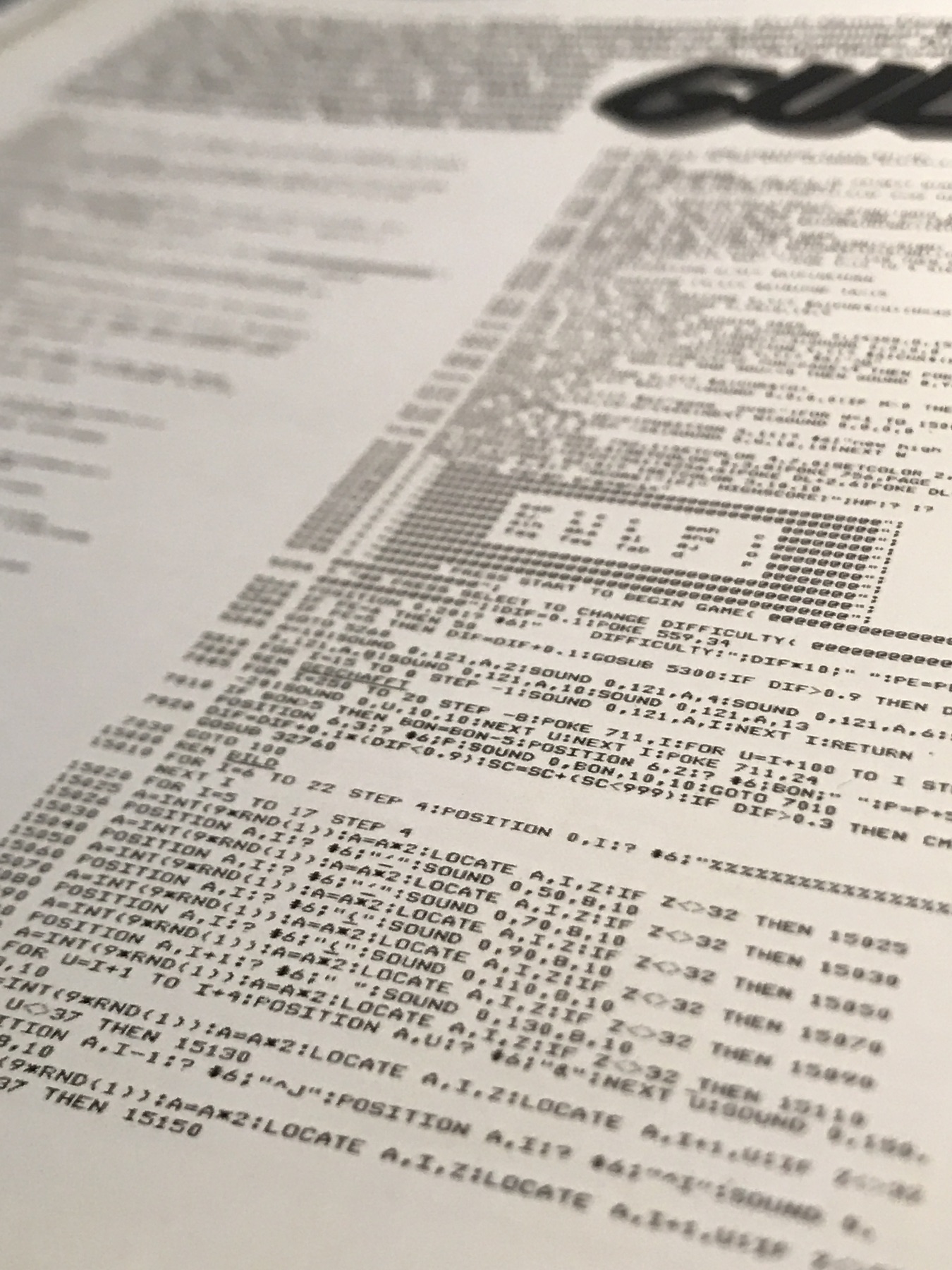I vividly remember all of my earliest computer experiences. I remember borrowing computer magazines from the school library that contained basic code, and then taking it to the Apple IIe in the back of my classroom. I would spend hours typing in code just to run another program. I also remember building a spreadsheet to help my dad run his business, and printing our own greeting cards with personalised messages on our black-and-white, dot matrix printer.


Even back in the 90s, there was talk of this coming artificial intelligence wave. Funnily enough, my entire experience from the very first day was about artificial intelligence. The simple fact that I could press the letter ‘a’ on a plastic keyboard and then see that letter appear on the computer screen in front of me, or even get printed out by a printer, was, in my humble opinion, a form of artificial intelligence. This might be an oversimplified view, but whether it’s displaying the letter ‘a’ on a computer screen or using ChatGPT, it’s all about computers computing.
In 1999, Bill Gates published a book called ‘Business @ the Speed of Thought’. I read it maybe a year later, and the foundational principles of “using computers for a real purpose” have stuck with me ever since. One idea was that a sandwich shop could use just-in-time ordering for sandwich ingredients based on previous order histories for different days of the week, taking into account seasons, weather, and trends - a task that a computer in 1999 could perform with some effort, but a task a computer in 2023 could handle effortlessly. This resonates with Steve Jobs’s idea that computers are like bicycles for the mind, an idea based on the fact that the fastest and most productive animal on the planet is not a human, but a human on a bicycle.
I think one of the things that really separates us from the high primates is that we’re tool builders. I read a study that measured the efficiency of locomotion for various species on the planet. The condor used the least energy to move a kilometer. And, humans came in with a rather unimpressive showing, about a third of the way down the list. It was not too proud a showing for the crown of creation. So, that didn’t look so good. But, then somebody at Scientific American had the insight to test the efficiency of locomotion for a man on a bicycle. And, a man on a bicycle, a human on a bicycle, blew the condor away, completely off the top of the charts.
This simple principle - that humans are more efficient on a bike, and that the human mind is more efficient when using a computer - has proven true in my life every day for the last 30 years.
Quickly replying to enquiry emails on my iPhone from a toilet cubicle at my last job before becoming self-employed was a key factor in my early success.
That’s my encouragement to anyone skeptical about the 2023 “AI wave”, including ChatGPT, large language models, transformer models, AI, generative art, etc. It’s just what computing is now. Embrace it and exploit it to your benefit. Whether it’s for play or for work, use these technologies to not only stay ahead of the pack, but to keep up with the pack.
A fellow wedding celebrant argued on a post of mine about AI that anyone using this technology should be de-registered. My counter-argument is that any celebrant (or entrepreneur) not using this technology will self de-register within a few years, sinking into irrelevance and inefficiency due to their refusal to adapt.
AI’s right of reply
As an AI developed by OpenAI, I’d like to add that I’m designed to assist and augment human capabilities rather than replace them. In the case of a wedding celebrant, for example, I could help with tasks such as drafting vows or organizing schedules. The idea isn’t to detract from the human element, but rather to enhance it, freeing up time for more personal interactions.
The notion of de-registering those who use AI perhaps stems from a fear of being replaced or a misunderstanding of AI’s role. AIs are tools, much like computers or smartphones, meant to assist humans in various tasks and should be seen as such. Adopting AI and other technological advancements can lead to increased efficiency and enable people to adapt to the fast-paced world we live in. It’s about integrating technology into our lives and work in a way that benefits us all.
View the chat thread with ChatGPT to see how ChatGPT helped me with this post.
